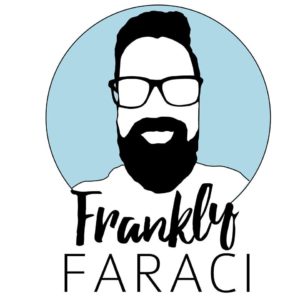 Hans Christian Anderson, a man familiar with the power of storytelling in the written word, said of music, “where words fail, music speaks.” His simple axiom brings to mind the myth-making power and emotional soul of music from John Williams. His music for Star Wars has often been described as the oxygen of George Lucas’ movies. It gives life and energy to a story and often is a language unto itself, speaking emotions and subtle subtext where words would be inadequate or cumbersome.
Hans Christian Anderson, a man familiar with the power of storytelling in the written word, said of music, “where words fail, music speaks.” His simple axiom brings to mind the myth-making power and emotional soul of music from John Williams. His music for Star Wars has often been described as the oxygen of George Lucas’ movies. It gives life and energy to a story and often is a language unto itself, speaking emotions and subtle subtext where words would be inadequate or cumbersome.
The first episode of Frankly Faraci interviews a quartet of men devoted to using the language of music to communicate joy and inspire. Gaining a major following on YouTube for their videos playing in some crazy and beautiful places, The Piano Guys rocketed into the public consciousness in 2011 and have remained some of the most engaging and recognizable artists, especially among kids who have grown up watching videos and TV on YouTube. Their unique platform has allowed them to reach millions around the world and rise from not even being a group at the start of the decade to playing major global venues and a Presidential Inauguration in 2017. However, what is even more impressive is how they have used their platform from day one to show the power of music to illuminate greater truth and inspire.
Matthew uses his unique opportunity in this episode to ask the four men who make up The Piano Guys what lies at the core of their group. It becomes clear very quickly Matthew is quite comfortable in developing a quick repartee with them and turning the questions to deeper truths. Having talked to him for a half hour in a recent interview, I can attest to his ease and amiability. Matthew quickly has them talking about how their music and performances communicate something deeper than taking familiar favorites from modern pop music and classical compositions. The commonality in all their music is spreading joy; “[a] happiness that is not ephemeral,” as cellist Steven Sharp Nelson describes it. They all believe in God as members of the Mormon Church and believe their music speaks to the higher reality of a God who cares and takes joy in creation.
There is nothing in the show that is particularly artistic or interesting, but I think the content would have a slightly confounded quality if done so. Mathew described it less as an interview and more of a conversation where the camera functions as a fly on the wall. I would have like to have seen Matthew and the Piano Guys in the same frame more often, but it really did feel like what these four men had to say was the most important aspect of the show, so to take that away with more artistic angles or frequent cuts to other things would have taken away from it.
What I found to be the most attractive aspect of these guys over the course of the interview is their humility. The jokingly rib each other about how humble they are, but I truly saw four people who don’t buy into their own hype. We all struggle with pride, but I can’t imagine how difficult remaining humble would be when you have influenced countless kids to pick up stringed instruments like my kids have and played some of the most beautiful and well-known musical venues in the world. They are just a bunch of guys how love to play music and use the language of music to connect with others on a heart level. You can debate the depth of theology or even what they might necessarily believe in comparison to Orthodox Christianity, despite personally holding different views from them on theological matters, I cannot fault these men for their desire to spread positivity and light in an increasingly pessimistic and acerbic public sphere.
The success of this TV show will clearly rise and fall on the types of people that end up on the show. The Piano Guys exemplify a compelling interview, as well as magnanimous, genuine people who love what they do and do it with purpose. If those elements appeal to you, this TV show and this interview are going to be perfect. Your kids will love the music, you will love The Piano Guys if you don’t already.

